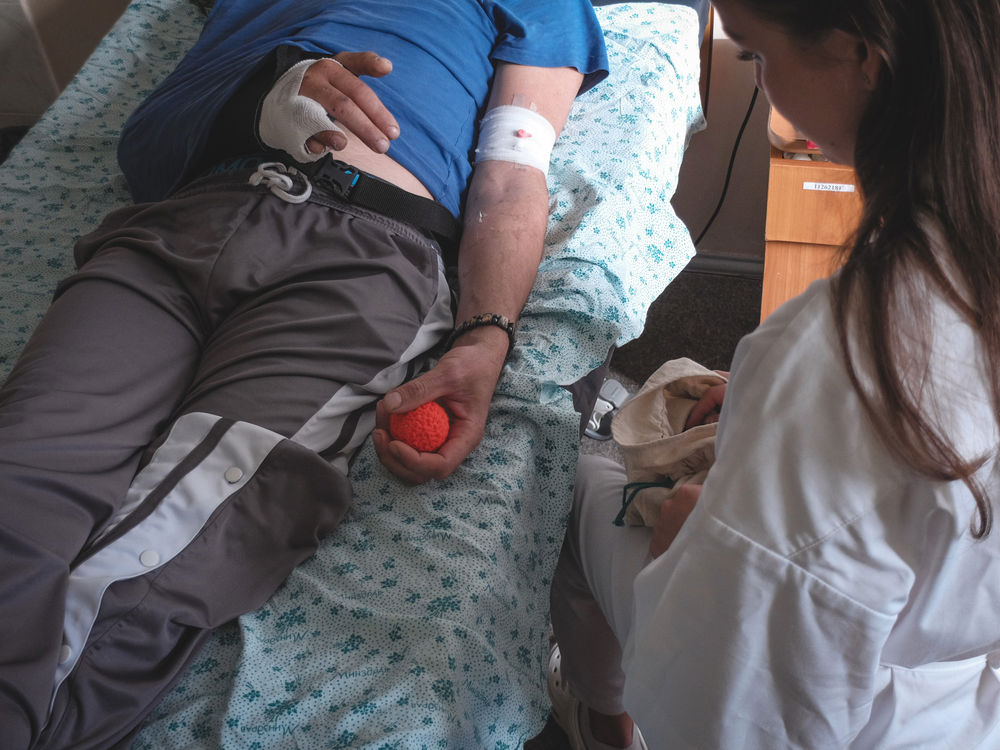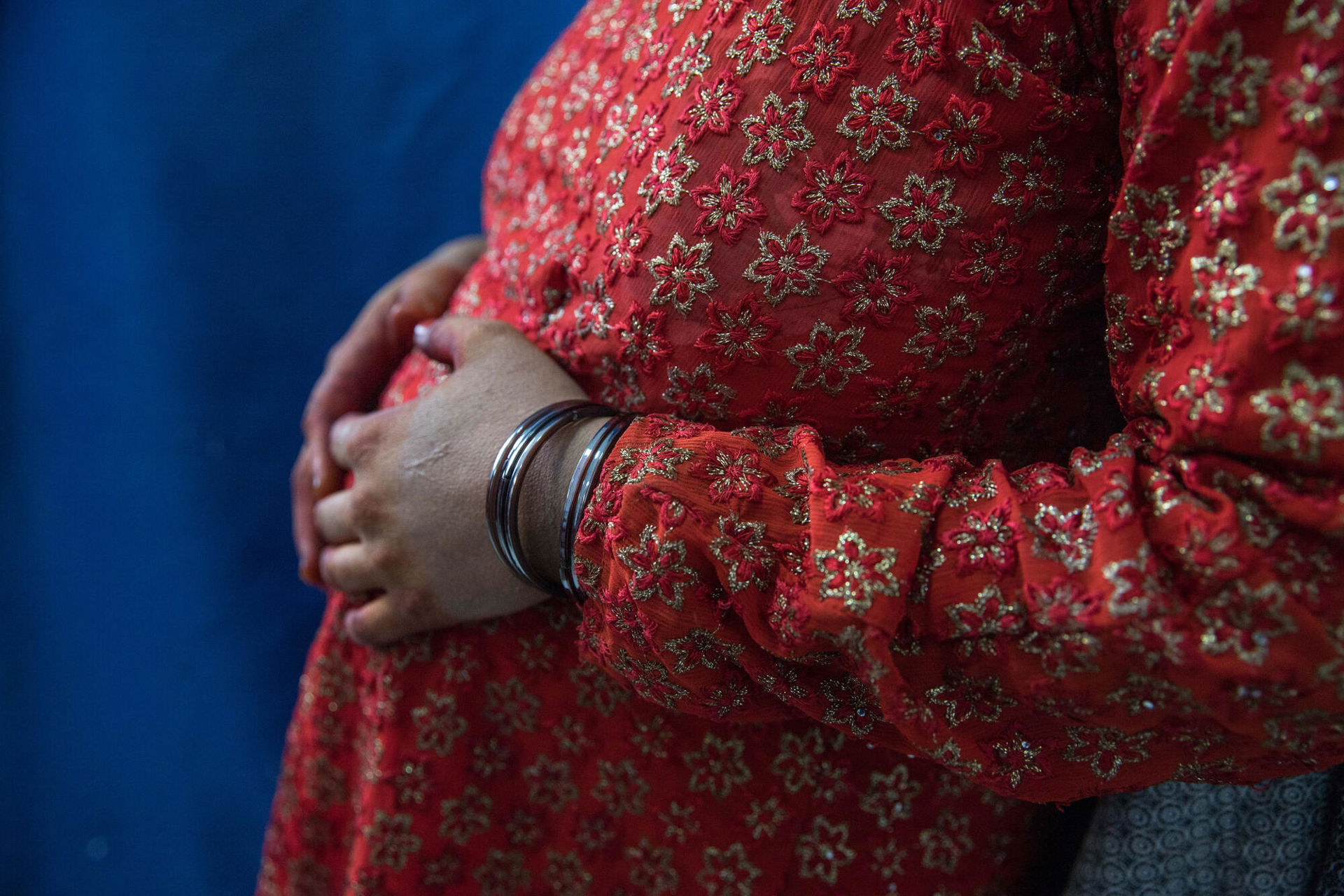As I enter our office with its welcoming sofa, I put on my beige uniform. I like the calm colour and so do the patients. I take a moment to check my notes and patient list. Today I have several individual sessions. One is with a young man with severe bullet wounds and complex post-traumatic stress disorder (PTSD). He is haunted by nightmares and guilt after he witnessed his friend’s death but was unable to do anything to help due to being under bombardment. Now he faces the emotional challenge of confronting this trauma, including the difficult experience of meeting his friend’s mother. I wonder: did he manage to sleep last night?
When I enter the ward, he greets me with a smile. ‘I slept last night – for the first time in a long time!’ he says. ‘I remembered the technique you taught me – I focused on my breathing, inhaling and exhaling deeply – and somehow I just drifted off.’ His success is a joy for both of us. As we talk, his wardmates join in, sharing their own thoughts and stories.
My day at MSF’s early rehabilitation project in Cherkasy usually consists of individual psychological sessions, where we work through fears, phantom pains and the challenges of relearning how to live in a changed body. The most common issues we address are fear, pain and emotional wounds. Often, conversations with one patient flow naturally into discussions with others in the room, creating an informal support network that helps everyone heal. We also hold sessions with the families of our patients, helping them build the emotional resilience needed to support their loved ones through recovery.
In Ukraine, receiving psychological help during the early stages of rehabilitation is rare. Typically, psychological care is only considered after physical wounds have nearly healed. Yet this prevents patients from receiving crucial support in accepting and adapting to their changed bodies right from the beginning. Later, they might face depression or addiction, conditions that are harder to treat than providing timely psychological care during the initial stages of rehabilitation.
Our patients suffer from severe and often chronic pain, including phantom pain, which can be incredibly distressing. Our main goal is to stabilise patients psychologically and then connect them with long-term care, if needed. We focus on teaching simple self-regulation techniques, such as refocusing, breathing exercises and muscle relaxation, so that patients have the tools to manage their pain when they’re alone and the medication has worn off.
We also explain what is happening to them – how their nervous system reacts to stress and how these physiological changes can affect them emotionally. For nearly every patient, the initial shock of finding themselves in bed, nearly immobile and in pain, is overwhelming. Our role is to guide them to accept this new reality and navigate their way through feelings of rejection or grief. Teaching them to transform their thoughts and helping them to envision a future beyond the fight-or-flight response is central to our work.
At the end of the day, I change out of my uniform and remind myself that I’ve left each patient with self-regulation techniques. They’re strong – they will manage tonight. And together, we’ll keep moving forward, one step at a time.
Inna Kravchenko has been a practising psychologist since 2015. She graduated from Bohdan Khmelnytskyi Cherkasy National University with a degree in practical psychology. Her areas of specialism are psychoanalysis, cognitive therapy, behaviourism, group therapy and integrative psychotherapy. She joined the MSF team in Cherkasy in September 2024.



